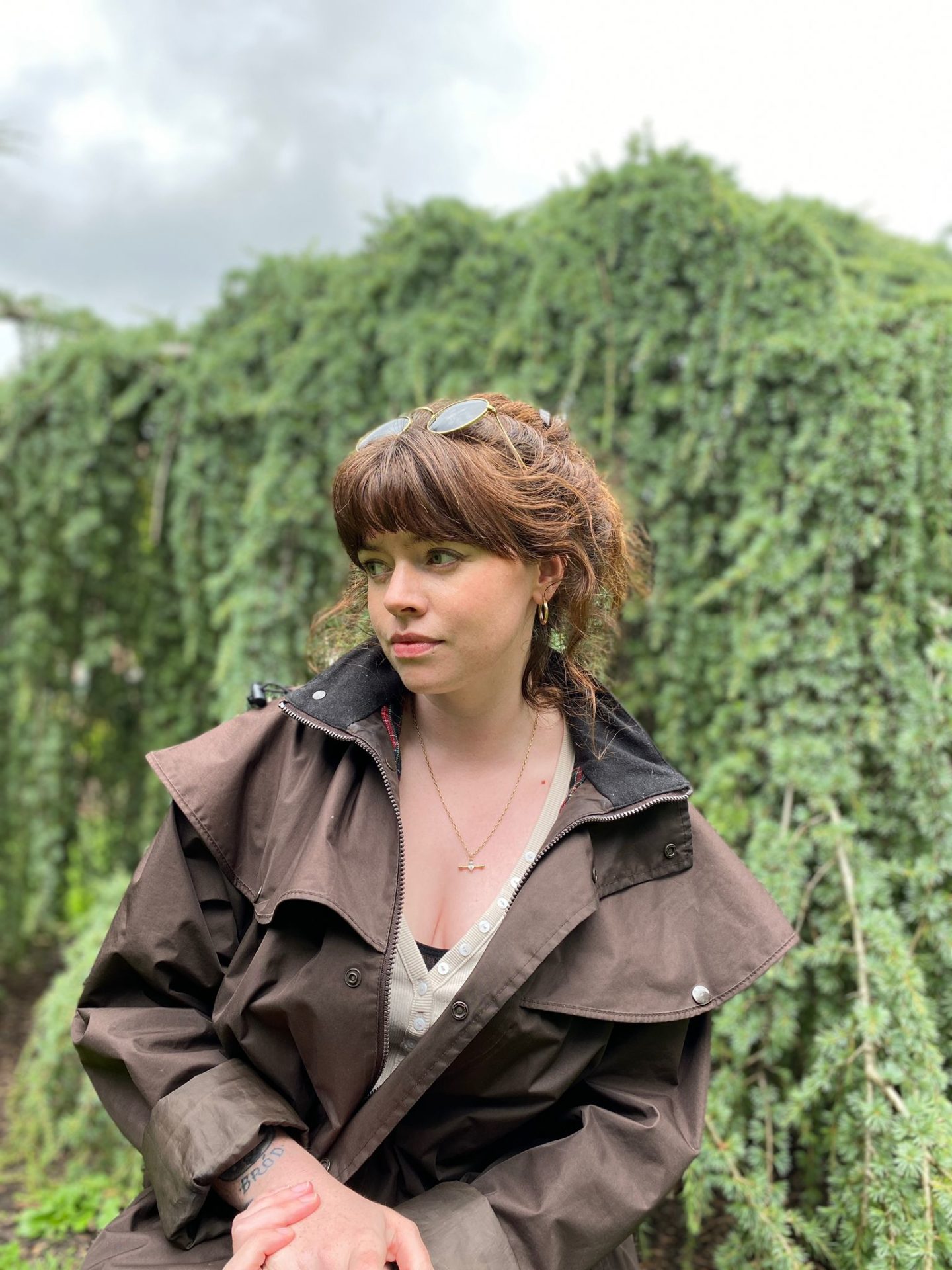Researcher of the Month - September 2021, Laura Wallace

Laura Wallace is a feminist researcher undertaking a PhD in the school of Philosophy, Religion and History of Science at the University of Leeds, funded by the White Rose College of the Arts and Humanities (WRoCAH). Originally from Dublin, Ireland, her research interests are in Irish studies of Catholicism, sex work, gender, sexuality, and nationalism.
Tell us a little about your ‘research journey’ – how did you get to where you are right now?
My research journey began when I undertook a BA in Theology and Religious Studies at the University of Leeds, where I found myself focusing heavily on the field of Irish studies, gender and sexuality. I continued on to do an MA in Religion and Public Life where I began making broad connections between religious studies, sex work and the wider sex industry. I explored these by conducting a small-scale study on religious language and sex work in Higher Education, followed by a dissertation that focused on religiosity within an organisation in Dublin that worked with persons in the sex industry. After my MA I immediately applied for a PhD position at Leeds and was awarded a studentship from WRoCAH. Having the enthusiastic support of WRoCAH, and my supervisors Dr Caroline Starkey and Professor Adriaan van Klinken, has been a tremendous privilege on my research journey so far. This, alongside friendships and personal activism, has led me to my current research examining the role of Catholic faith-based organisations, social change, and the Irish sex industry.
Who, or what, sparked your interest to work on your particular research area?
The core of my research interest is autobiographical. Studying later in life as an Irish immigrant, who was coming to terms with my own sexual identity and the cultural norms I had been exposed to in Ireland, led me to think critically about religion in Ireland. In the third year of my undergraduate degree, I found Professor Tom Inglis’ work on the Catholic Church and Irish sexuality and, from there, I was fully committed to delving more into Irish studies. Since then, I’ve watched the fields of Queer Studies and Irish Studies of sexuality grow tremendously but have often found myself wondering how Ireland’s once dominant religious landscape fits into contemporary Ireland. With this in mind, my work aims to be attentive to the past in order to reflect on where we are now, and where we could be. This is important to my research because to know how things started, be that religiously or something else, implies there could have been another way.
What are you currently, or about to start, working on?
I’ve just started my second year of my PhD which is sure to be full of data collection, interviewing, and ethnography in Ireland. I’ve recently completed my first interview which was a fantastic experience and has my mind buzzing with ideas about the direction of my current research. I’m also turning the first chapter of my PhD into a journal article. This work focuses on Mariology and devotion to the Virgin Mary in Ireland and its impact on sex work. In the article I explore the boundaries between religious discourses in public life, the secularisation narrative, whiteness, and the implications these hold for the sex industry in Ireland. The intersections between religious discourse, nationalism, and sexuality in Ireland form a basis of the subject area I have been researching throughout the first year of my PhD and have yielded some very rewarding work that I’m excited to share throughout the next two years.
In what way(s) do you feel your research examines the role of religion in public life and the relationship between the two?
Ireland has a long and complicated history with the Catholic Church, which has morally and institutionally shaped many areas of public life. My research examines (what are arguably) two private aspects of a specific group of people’s lives: belief and sex. These aspects are explored in relation to public life through an examination of faith-based organisations and the Irish sex industry. By rooting the research within themes of nationalism, secularization, and gender, my research teases out Catholic social teachings in order to understand their intersections in policy, activism and social change in relation to the sex industry in Ireland.
